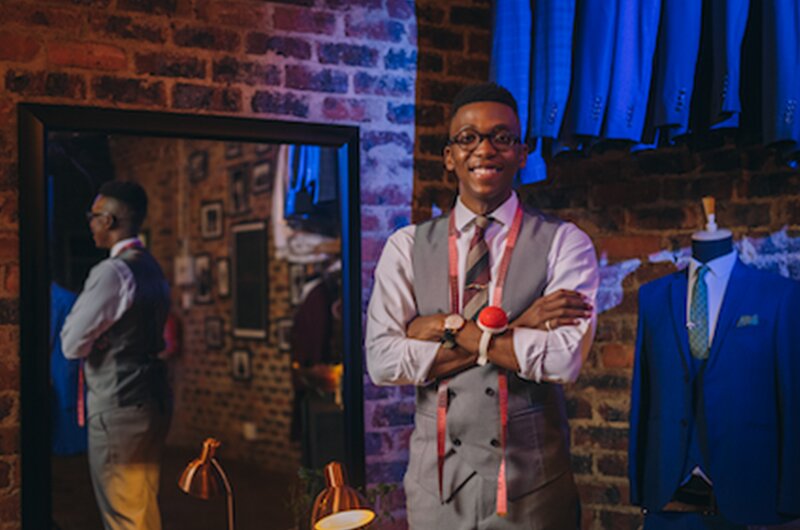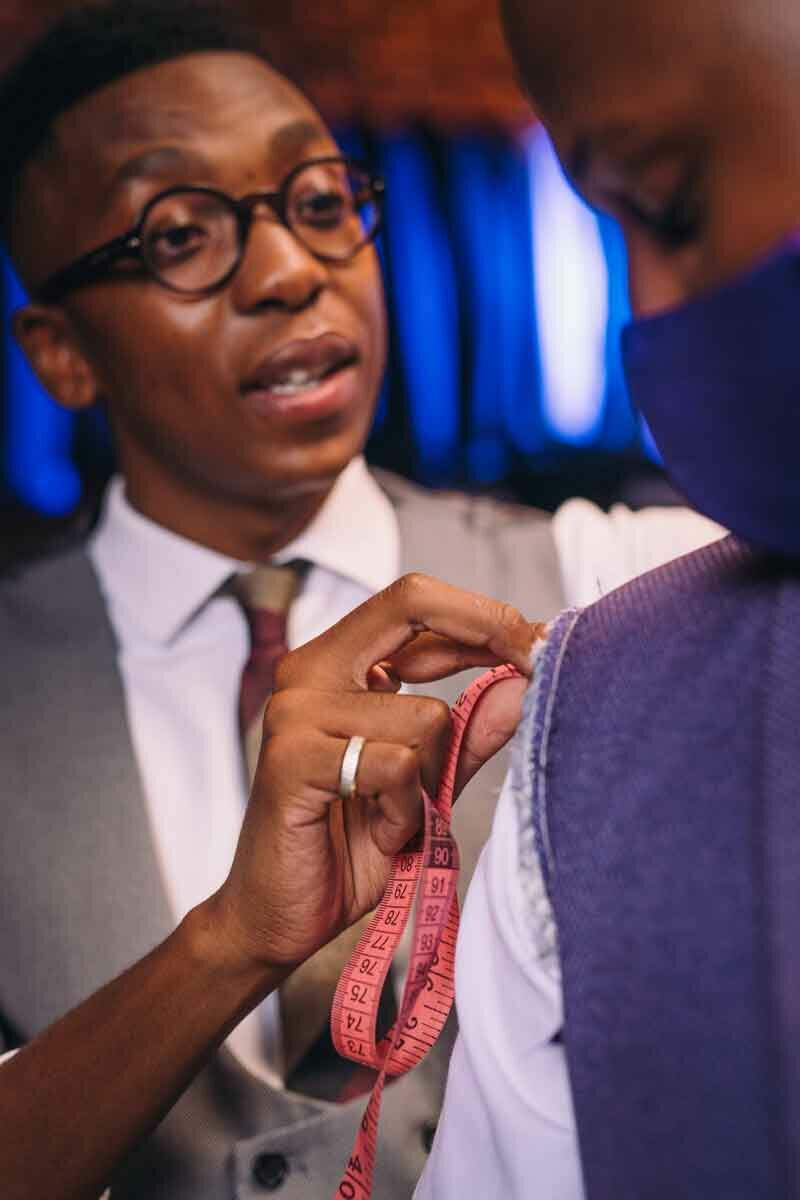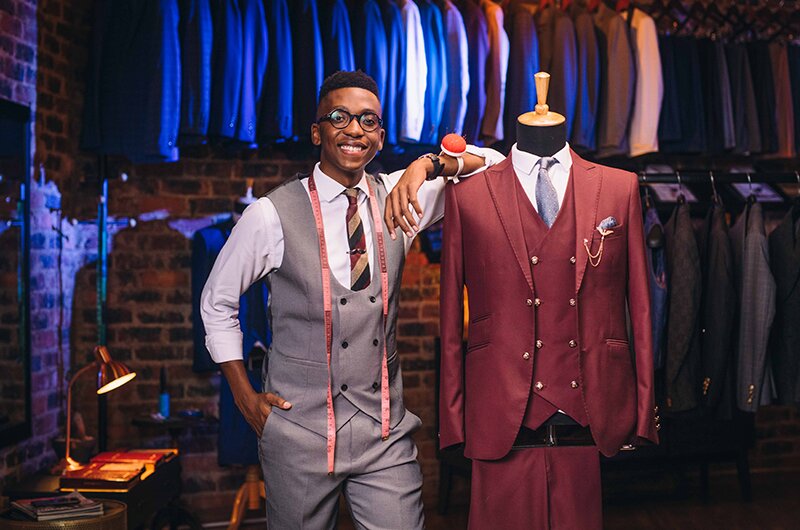DESIGNER STUDIO: NKULULEKO MAHLANGU
Tailoring new pathways during the pandemic…
Nkululeko Mahlangu remembers the very first suit he made. “It was for a colleague’s partner. She loved the way I dressed, and she wanted me to do the same for him … to give him the same [luxurious] feeling.”
That was the beginning of Mahlangu’s inner-city Johannesburg small business, Busanimen, tailor-making stylish, exclusive men’s suits for special occasions – at affordable prices.
“I started the business back in 2013. I was 19 and was studying and working at the same time. Ever since then, I’ve maintained a corporate job while growing my business,” he says.
Fast-forward to March 2020 and the onset of the Covid-19 pandemic. Considering that Busanimen offered tailored men’s suits and formal wear at a time when most people were working from home and lounging around in tracksuits, it was vital for the business to evolve fast.

“Covid has shown us that a business that’s dependent on one retail aspect has no longevity. So, we’ve had to look at how to grow the business in a sustainable manner … and we’ve built a second business within the brand called Busanitextiles, where we manufacture high-quality, high-quantity hospital linen and hospital wear, as well as school uniforms,” says Mahlangu.
Being agile in this way has allowed him to scale the business, employ more people and grow sales.
The country’s recent move to lockdown level 1 has also boosted business. “Schools are having matric dances, and graduations are opening up. There are a lot of weddings. So, last month, we were fully booked [for tailoring suits] in terms of matric dances, weddings and other formal occasions,” he says.
Being flexible has also meant giving customers what they want in terms of new trends, particularly when it comes to tailored suits. “What we’re trying to cater for at the moment is a more comfortable fit, a lighter fit, not always using [conventional] suiting fabrics, especially for weddings and special-occasion type of events,” notes Mahlangu, adding that safari suits and traditional kaftans are all the rage at the moment.

All this means looking closely at the SMME’s future marketing efforts, he says. “For now, the country is open again … but, remember, it might close again. So, how do we tailor our marketing for a [possible] change in lockdown levels?”
While the July looting in Gauteng did not affect his store or property, it did affect many of the suppliers and retailers he does business with. “So, as much as our shop wasn’t touched, we couldn’t physically go into town [the Johannesburg CBD] to get fabric or compare prices, so we were closed for a week or so,” Mahlangu says.
He is sanguine about such challenges. “Our attitude following the violence and unrest was not to place blame, but to seek understanding and become part of the global solution.”

“We’re always reinventing and redefining our offering,” concludes Mahlangu – and we’re watching this space to see what his stylish outfit comes up with next.





0 Comments